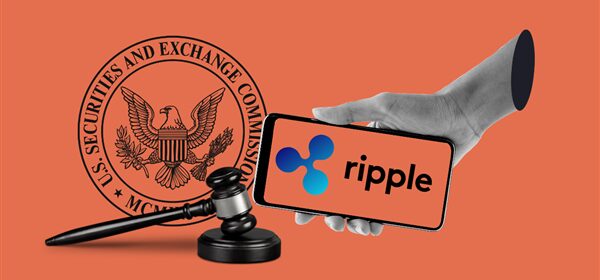Will The Ripple Ruling Bring an End to the Era of Regulation by Enforcement? – Coinpedia Fintech News

In a landmark ruling, a district judge delivered a blow to the Securities and Exchange Commission (SEC) in their case against Ripple’s XRP token. Does this judgment ignite a glimmer of hope for the crypto community, signaling a potential shift towards a more balanced regulatory framework?
John Rizzo, Former U.S. Treasury spokesperson suggests that the ruling could signify the beginning of the end for the SEC Chair Gensler’s regulation-by-enforcement approach to crypto assets. He argues that the ruling exposes the flaws in the SEC’s strategy and may lead to a more favorable regulatory framework for cryptocurrencies, potentially drafted by congressional Republicans.
The SEC’s regulation-by-enforcement strategy received a significant setback as the district court ruling challenged the notion that all tokens are “securities”. This decision not only highlighted the flaws in the SEC’s approach but also underscored the need for a more nuanced and comprehensive understanding of cryptocurrencies.
Power Shift: Possible Bipartisan Crypto Regulation
The ruling couldn’t have come at a better time, as policymakers in Congress are actively engaged in crafting legislation to regulate the crypto industry. Rizzo highlights that there has been a longstanding desire among both Republicans and Democrats in Washington to bring crypto assets into a regulatory perimeter.
However, some individuals aimed to hinder the development of comprehensive crypto regulations by asserting that most crypto tokens are securities and should be regulated as such. The SEC’s previous enforcement approach remained unchallenged by the courts until this ruling.
Previously, some detractors sought to obstruct comprehensive crypto regulation by perpetuating the belief that all crypto tokens were securities. However, the recent ruling punctures this argument, forcing opponents of crypto to reassess their stance.
Interestingly, this turn of events may pave the way for a bipartisan agreement on a regulatory framework that embraces the potential of crypto assets while addressing legitimate concerns. With the SEC and anti-crypto Democrats facing a weakened position, the possibility of a more inclusive legislative approach gains momentum.
Implications of Court Losses?
Rather than an all-out ban or overly restrictive regulations, a balanced regulatory framework could empower innovation while safeguarding consumers. Such an approach recognizes the value of crypto assets in driving economic growth and financial inclusion, while still maintaining necessary safeguards against fraudulent activities and illicit finance.
Notably, the SEC’s potential retreat from a regulation-by-enforcement strategy is a positive development that could foster a constructive dialogue between regulators, industry stakeholders, and innovators. This shift towards a more collaborative approach holds the promise of a regulatory environment that encourages responsible innovation and sets clear rules for market participants.
However, it is important to acknowledge that this ruling is not the final word on crypto regulation. Legal battles and policy discussions will continue to shape the landscape, and careful consideration of the risks and benefits of the crypto industry remains essential.
As the dust settles, one thing is certain: the Ripple ruling has injected a fresh wave of optimism into the crypto community. It serves as a reminder that a balanced and informed approach to regulation is crucial for the long-term growth and sustainability of the crypto ecosystem.
While challenges lie ahead, this pivotal moment offers an opportunity to establish a regulatory framework that strikes the right balance, ensuring that crypto assets can flourish within a well-defined regulatory framework that protects both investors and innovators.
Source: Read Full Article

